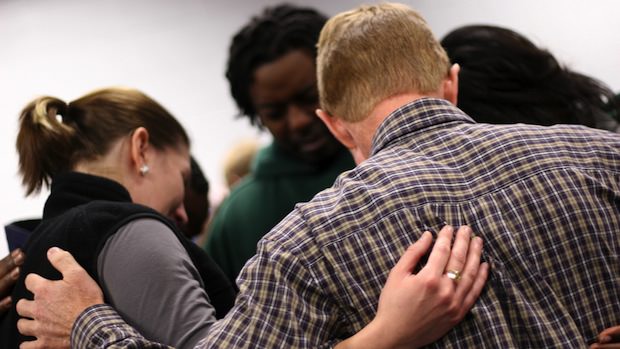Charles Spurgeon said, “Every Christian is either a missionary or an impostor.” As disciples of Jesus, we are simultaneously sent to live on mission. Living on mission is part of what it means to be a disciple. Biblically, there is no such thing as a disciple who does not live on mission. As Christ was sent for us, we have been sent to the world around us.
As church leaders consider “discipleship” and “mission,” they must not view these as divorced from one another, as if “we disciple people” and then later “challenge them to live on mission.” We don’t graduate from discipleship and move on to mission. Both are always essential and deeply connected. We must challenge people and teach people to live on mission as we disciple them. And we must continually disciple them as they live on mission.
Discipleship is neither information nor behavioral modification but is ultimately transformation. In the book Transformational Discipleship, we unpack a framework for transformation based on research. God is not bound by any framework, but He often transforms His people as:
- Godly leaders apply
- the truth to hearts
- while people are in a teachable posture
As the image illustrates, the convergence of godly leaders, the truth of God, and a teachable posture results in our hearts being more and more conformed to His image.
An encouragement about mission and discipleship:
In the research behind Transformational Discipleship, we discovered that an “outward focus” puts people in a teachable posture. A church that is serious about discipleship provides mission opportunities for their people, not just for the benefit of those who will be served but also for those who are serving. Mission opportunities, in reality, are simultaneously discipleship opportunities:
- A mission opportunity makes someone eager for preparation. The church member who finally shares his faith at work and is asked questions he cannot yet answer has a new motivation to learn some of the lessons he has heard for years.
- A ministry assignment puts people in a position of being wholly overwhelmed, where they know they need Him and His power. A sense of mission drives us to prayer and dependence on Him.
- A mission assignment has the potential to rock and change one’s perspective of the world, people, and the need for the gospel to advance more rapidly.
As you seek to develop doers and not merely hearers, mission opportunities put the people you serve in a teachable posture. God will use mission to transform the people you serve.
A caution about mission and discipleship:
Without the truth of God applied to our hearts, a teachable posture will not result in transformation. In other words, the truth of God must be applied to the heart in the midst of mission. If we don’t apply the truth of the gospel, mission engagement can degenerate into attempts to earn God’s favor or alleviate guilt.
We live in an altruistic society where people are encouraged to do good, to engage in humanitarian work, and to serve our society. People want a mission. And people want a law—a list of things they can check off to feel justified and approved before God. We must be careful not to make mission a new law.
Church leaders must constantly remind people of the why of mission in the midst of mission, that we serve a missionary God who came here to rescue us, that we live as sent believers because Jesus was sent here for us. Mission must not be our justification but our response to our justification.
We must remind the people we serve to rejoice more in what Christ has done for us than what Christ does through us. If awe for what He does through us surpasses awe for what He has done for us, mission is our idol instead of our response.
Jesus gives us this example. When the disciples came back to Him filled with excitement over the result of the mission assignment Jesus had given them, Jesus cautioned them to rejoice in their forgiveness rather than their influence.
The Seventy returned with joy, saying, “Lord, even the demons submit to us in Your name.” He said to them, “I watched Satan fall from heaven like a lightning flash. Look, I have given you the authority to trample on snakes and scorpions and over all the power of the enemy; nothing will ever harm you. However, don’t rejoice that the spirits submit to you, but rejoice that your names are written in heaven.” (Luke 10:17-20)
Discipleship and mission are deeply interwoven. As we disciple people, we must help them understand that mission is part of their discipleship. And we must constantly remind people of the grace of God as they serve Him.






